- Home
- P. D. James
Cover Her Face Page 9
Cover Her Face Read online
Page 9
For one unbelievable second Dalgleish thought that she knew. It was a commonplace, almost banal argument which any mother faced with her circumstances might casually have used.
She could not possibly have realized its force. He wondered what she would say if he replied, "I have no son. My own child and his mother died three hours after he was born. I have no son to marry anyone - suitable or unsuitable." He could imagine her frown of well-bred distaste that he should embarrass her at such a time with a private grief at once so old, so intimate, so unrelated the matter at hand.
He replied briefly:
"No. I should not wish it either. I'm sorry to have taken up so much of your time with what must seem no one's business but your own. But you must see its importance."
"Naturally. From your point of view it provides a motive for several people, myself particularly. But one does not kill to avoid social inconvenience. I admit that I intended to do all I could to stop them marrying. I was going to have a talk with Stephen next day. I've no doubt we would have been able to do something for Sally without the necessity of welcoming her into the family. There must be a limit to what these people expect."* The sudden bitterness of her last sentence roused even Sergeant Martin from the routine automatism of his notetaking.
But if Mrs. Maxie realized that she had said too much she did not aggravate her error by saying more. Watching her, Dalgleish thought how like a picture she was, an advertisement in water-color for toilet water or soap. Even the low bowl of flowers on the desk between them emphasized her serene gentility as if placed there by the cunning hand of a commercial photographer. "Picture of an English lady at home," he thought, and wondered what the Chief Superintendent would make of her and, if it ever came to that, what a jury would make of her.
Even his mind, accustomed to finding wickedness in strange as well as high places, could not easily reconcile Mrs.
Maxie with murder. But her last words had been revealing.
He decided to leave the marriage question at present and concentrate on other aspects of the investigation. Again he went over the account of the preparation of the nightly hot drinks.
There could be no confusion about the ownership of the different mugs. The Wedgwood blue one found at Sally's side belonged to Deborah Riscoe. The milk for the drinks was placed on top of the stove.
It was a solid-fuel stove with heavy covers to each of the hot-plates. The saucepan of milk was left on top of one of these covers where there could be no danger of its boiling over. Any of the family wanting to boil the milk would transfer the saucepan to the hot-plate and replace it afterwards on top of the cover. Only the family's mugs and cups for their guests were placed on the tray. She could not say what Sally or Mrs. Bultitaft usually drank at night but, certainly, none of the family drank cocoa. They were not fond of chocolate.
"It comes to this, doesn't it," said Dalgleish. "If, as I am now assuming, the post-mortem shows that Miss Jupp was drugged and the analysis of the cocoa shows that the drug was in her last night drink, then we are faced with two possibilities. She could have taken the drug herself, perhaps for no worse reason than to get a good sleep after the excitement of the day. Or someone else drugged her for a reason which we must discover but which is not so difficult to guess. Miss Jupp, as far as is known, was a healthy young woman. If this crime was premeditated her murderer must have considered how he - or she - could get into that room and kill the girl with the least possible disturbance. To drug her is an obvious answer. That supposes that the murderer is familiar with the evening drink routine at Martingale and knew where the drugs were kept. I suppose a member of your household or a guest is familiar with your household routine?"
"Surely then he would know that the Wedgwood beaker belonged to my daughter. Are you satisfied, Inspector, that the drug was intended for Sally?"
"Not entirely. But I am satisfied that the killer did not mistake Miss Jupp's neck for Mrs. Riscoe's. Let us assume for the present that the drug was intended for Miss Jupp. It could have been put into the saucepan of milk, the Wedgwood beaker itself either before or after the drink was made, into the tin of cocoa, or into the sugar. You and Miss Bowers made your drinks from the milk in the same saucepan and sugared them from the bowl on the table without ill effects. I don't think that the drug was put in the empty beaker. It was brownish in color and would be easily seen against the blue China. That leaves us with two possibilities. Either it was crumbled into the dry cocoa or it was dissolved in the hot drink some time after Miss Jupp made it but before she drank it." ‹(I don't think the latter is possible, Inspector. Mrs. Bultitaft always puts on the hot milk at ten. At about twenty-five minutes past we saw Sally carrying her mug up to her room."
"Who do you mean by 'we', Mrs.
Maxie?"
"Dr. Epps, Miss Liddell and I myself saw her. I'd been upstairs with Miss Liddell to fetch her coat. When we came back into the hall Dr. Epps joined us from the business room. As we stood there together Sally came from the kitchen end of the house and went up the main she was with you?"
"No. Neither of us did. My son had given his father something earlier to make him sleep and he appeared to be dozing.
There was nothing to do for him except make his bed as comfortable as possible. I was glad of Miss Bowers's help. She is a trained nurse and, together, we were able to tidy the bed without disturbing him."
"What were Miss Bowers's relations with Dr. Maxie?"
"As far as I know Miss Bowers is a friend of both my children. That is the kind of question which it would be better to ask them and her."
"She and your son are not engaged to be married as far as you know?"
"I know nothing about their personal affairs. I should have thought it unlikely."
"Thank you," said Dalgleish. "I will see Mrs. Riscoe now if you will be good enough to send her in."
He rose to open the door for Mrs. Maxie but she did not move. She said, "I still believe that Sally took that drug herself. There's no reasonable alternative.
But if someone else did administer it then I agree with you that it must have been put into the dry cocoa. Forgive me - but wouldn't you be able to tell that from an examination of the tin and its contents?"
"We might have been," replied Dalgleish gravely. "But the empty tin was found in the dustbin. It had been rinsed out. The inner paper lining isn't there. It was probably burnt in the kitchen stove.
Someone was making assurance doubly sure."
"A very cool lady, sir," said Sergeant Martin when Mrs. Maxie had left them.
He added with unaccustomed humor, "She sat there like a Liberal candidate waiting for the recount."
"Yes," agreed Dalgleish dryly. "But with every confidence in her Party organization. Well, let's hear what the rest of them have to tell us."
It was a very different room from last time, thought Felix, but that room, too, had been quiet and peaceful. There had been pictures and a heavy mahogany desk not unlike the one Dalgleish was sitting at now. There had been flowers, too, a small posy arranged in a bowl hardly larger than a teacup. Everything about that room had been homely and comfortable, even the man behind the desk with his plump white hands, his smiling eyes behind the thick spectacles. The room had retained that look. It was surprising how many procedures there were for the extracting of truth which did not shed blood, were calculatedly unmessy, did not require very much in the way of apparatus. He wrenched memory back and made himself look at the figure at the desk. The folded hands were leaner, the eyes dark and less kind. There was only one other person in the room and he, too, was an English policeman. This was Martingale. This was England.
So far it had not gone too badly.
Deborah had been absent for half an hour. When she returned she walked to her seat without looking at him and he, just as silently, got up and followed the uniformed policeman into the business room. He was glad that he had resisted the desire to have a drink before his questioning and that he had refused Dalgleish's proffered cigaret
te. That was an old one! They couldn't catch him that way! He wasn't going to make them a present of his nervousness. If only he could keep his temper all would be well.
The patient man behind the desk looked at his notes.
"Thank you. That's clear so far. Now may we please go back a little? After coffee you went with Mrs. Riscoe to help wash up the dinner things. At about nine-thirty you both returned to this room where Mrs. Maxie, Miss Liddell, Miss Bowers and Dr. Epps were counting the money taken at the fete. You told them that you and Mrs. Riscoe were going out and you said 'Good night' to Miss Liddell and Dr. Epps, who would probably have left Martingale by the time you returned.
Mrs. Maxie said that she would leave one of the french windows in the drawingroom open for you and asked you to lock it when you had come in. This arrangement was heard by everyone who was in the room at the time?"
"As far as I know it was. No one commented on it and, as they were busy counting money, I doubt whether they took it in." ‹I find it surprising that the drawingroom window was left unlatched for you when the back door was also open. Isn't that a Stubbs on the wall behind you?
This house has several very fine things which are easily portable."
Felix did not turn his head.
"The cultured cop! I thought they were peculiar to detective novels.
Congratulations! But the Maxies don't advertise their possessions. There's no danger from the village. People have been wandering in and out of this house pretty freely for the last three hundred years.
The locking-up here is rather haphazard except for the front door. That is ritually bolted and barred every night by Stephen Maxie or his sister almost as if it had some esoteric significance. Apart from that, they aren't thorough. In that, as in other matters, they appear to rely on our wonderful police."
"Right! You went out into the garden with Mrs. Riscoe at about nine-thirty p.m. and walked there together. What did you talk about, Mr. Hearne?"
"I asked Mrs. Riscoe to marry me. I am going out to our Canadian house in two months' time and I thought it might be pleasant to combine business with a honeymoon."
"And Mrs. Riscoe accepted?"
"It's charming of you to be interested, Inspector, but I'm afraid I must disappoint you. Inexplicable as it must seem to you, Mrs. Riscoe was not enthusiastic."
The memory flooded back in a wave of emotion, Darkness, the cloying scent of roses, the hard urgent kisses which were the expression of some compelling need in her but not, he felt, of passion. And afterwards the sick weariness in her voice.
"Marriage, Felix? Hasn't there been enough talk of marriage in this family?
God, how I wish she were dead!" He knew then that he had been betrayed into speaking too soon. The time and the place had both been wrong. Had the words been pounds pencee wrong too? What exactly was it that she wanted? Dalgleish's voice recalled him to the present.
"How long did you stay in the garden, sir?"
"It would be gallant to pretend that time ceased to exist. In the interest of your investigation, however, I will admit that we came in through the drawing-room window at ten-forty-five p.m. The chiming clock on the mantelpiece struck the three quarters as I closed and bolted the window."
"That clock is kept five minutes fast, sir. Would you go on, please."
"Then we returned at ten-forty p.m. I did not look at my watch. Mrs. Riscoe offered me a whisky which I declined. I also declined a milk drink and she went to the kitchen to get her own. She came back in a few minutes and said that she'd changed her mind. She also said that, apparently, her brother was still out. We talked for a little time and arranged to meet to ride together at seven next morning. Then we went to bed. I had a reasonably good night. As far as I know Mrs. Riscoe had, too. I had dressed and was waiting for her in the hall when I heard Stephen Maxie calling down to me.
He wanted my help with the ladder. The rest you know."
"Did you kill Sally Jupp, Mr. Hearne?"
"Not so far as I am aware."
"What do you mean by that?"
"Merely that I suppose I could have done it while in a state of amnesia, but that is hardly a practical supposition."
"I think we can dismiss that possibility.
Miss Jupp was killed by someone who knew what he, or she, was doing. Have you any idea who?"
"Do you expect me to take that question seriously?"
"I expect you to take all my questions seriously. This young mother was murdered. I intend to find out who killed her without wasting too much of my own time or anyone else's and I expect you to co-operate with me."
"I have no idea who killed her and I doubt whether I should tell you if I had.
I haven't your evident passion for abstract justice. However, I'm prepared to co-operate to the extent of pointing out some facts which, in your enthusiasm for lengthy interrogations of your suspects, you may possibly have overlooked.
Someone had got through that girl's window. She kept glass animals on the ledge and they had been scattered. The window was open and her hair was damp.
It rained last night from half-past twelve until three. I deduce that she was dead before twelve-thirty or she would have closed the window. The child did not awake until its normal time. Presumably then the visitor made little noise. It is unlikely that there was a violent quarrel. I imagine that Sally herself let in her visitor through the window. He probably used the ladder. She would know where it was kept. He probably came by appointment.
Your guess is as good as mine as to why. I didn't know her but, somehow, she never struck me as being highly sexed or promiscuous. The man was probably in love with her and, when she told him about her intention to marry Stephen Maxie, he killed her in a sudden access of jealousy or anger. I can't believe that this 1 0 pounds was a premeditated crime. Sally had locked the door to secure their privacy and the man got out through the window without unlocking it. He may not have realized it was bolted. Had he done so he would probably have unbolted it and made his exit with more care. That bolted door must be a great disappointment to you, Inspector. Even you can hardly visualize any of the family pounding up and down a ladder to get in and out of their own house. I know how excited you must be about the Maxie-Jupp engagement but you don't need me to point out that, if we had to commit murder to get out of an unwelcome engagement, the mortality rate among women would be very high."
Even as he was speaking Felix knew that it was a mistake. Fear had trapped him into garrulity as well as anger. The police sergeant was looking at him with the resigned and slightly pitying look of a man who has seen too many men make fools of themselves to be surprised, but still rather wishes that they wouldn't do it.
Dalgleish spoke mildly. ‹I thought that you had a good night.
Yet you noticed that it rained from half past twelve until three."
"It was a good night for me."
"You suffer from insomnia then? What do you take for it?"
"Whisky. But seldom in other people's houses."
"You described earlier how the body was discovered and how you went into the adjoining bathroom with Mrs. Riscoe while Dr. Maxie 'phoned the police.
After a time Mrs. Riscoe left you to go to her mother. What did you do after that?" ‹(I thought I had better see if Mrs.
Bultitaft was all right. I didn't suppose that anyone would feel like breakfast, but it was obvious that we should need plenty of hot coffee, and that sandwiches would be a good idea. She seemed stunned and kept repeating that Sally must have killed herself. I pointed out as gently as I could that that was anatomically impossible and that seemed to upset her more. She gave me one curious look as if I were a stranger and then burst into loud sobbing.
By the time I had managed to calm her
Miss Bowers had arrived with the child and was being rather obviously capable with its breakfast. Martha took herself in hand and we got on with the coffee and with Mr. Maxie's breakfast. By that time the police had arrived and we were told to wait in the drawing room.
"
"When
Mrs. Bultitaft burst into tears, was that the first sign of grief that she had shown?"
"Grief?" The pause was almost imperceptible. "She was obviously very much shocked, as we all were."
"Thank you, sir. That has been very helpful. I will have your statement typed and later I will ask you to read it over and, if you agree with it, to sign it. If you have anything else you want to tell me therein be plenty of opportunity. I shall be about the place. If you are going back to the drawing-room will you ask Mrs. Bultitaft if she will come in next."
It was a command not a request. As he reached the door Felix heard the quiet voice speaking again.
"You will scarcely be surprised to hear that your account of things tallies almost exactly with that of Mrs. Riscoe. With one exception. Mrs. Riscoe says that you spent almost the whole of last night in her room, not your own. She says, in fact, that you slept together."
Felix stood for a moment facing the door and then turned round and faced the man behind the desk.
"That was very sweet of Mrs. Riscoe, but it makes things difficult for me, doesn't it? I'm afraid you will have to make up your mind, Inspector, as to which of us is lying."
"Thank you," said Dalgleish. "I have already done so."
Dagleish had met a number of Marthas in his time and had never supposed them to be complicated people. They were concerned with the comfort of the body, the cooking of food, the unending menial tasks which someone must carry out before the life of the mind can have any true validity. Their own undemanding emotional needs found fulfillment in service. They were loyal, hardworking and truthful and made good witnesses because they lacked both the imagination and the practice necessary for successful lying. They could be a nuisance if they decided to shield those who had gained their loyalty but this was an overt danger which could be anticipated. He expected no difficulty with Martha. It was with a sense of irritation that Dalgleish realized that someone had been talking to her. She would be correct, she would be respectful, but any information he extracted would be gained the hard way. Martha had been coached and it was not hard to guess by whom. He pressed patiently on.

 The Skull Beneath the Skin
The Skull Beneath the Skin A Taste for Death
A Taste for Death The Children of Men
The Children of Men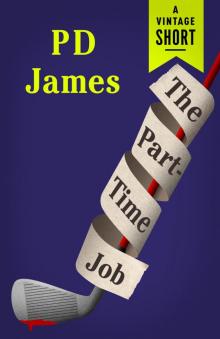 The Part-Time Job
The Part-Time Job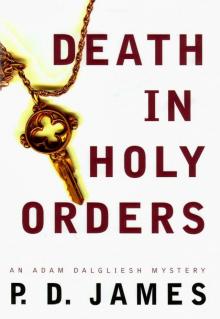 Death in Holy Orders
Death in Holy Orders The Victim
The Victim Shroud for a Nightingale
Shroud for a Nightingale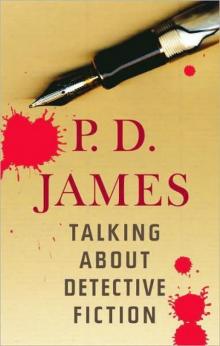 Talking about Detective Fiction
Talking about Detective Fiction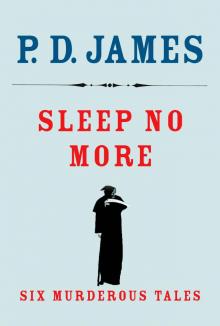 Sleep No More
Sleep No More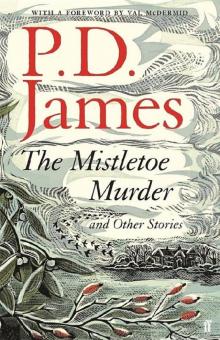 The Mistletoe Murder and Other Stories
The Mistletoe Murder and Other Stories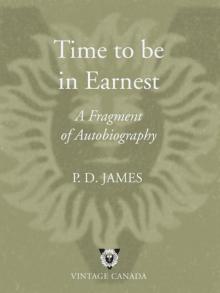 Time to Be in Earnest
Time to Be in Earnest Original Sin
Original Sin A Mind to Murder
A Mind to Murder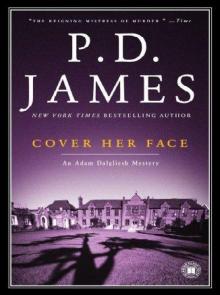 Cover Her Face
Cover Her Face Innocent Blood
Innocent Blood Devices and Desires
Devices and Desires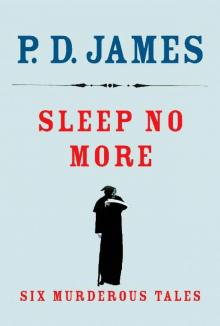 Sleep No More: Six Murderous Tales
Sleep No More: Six Murderous Tales Death Comes to Pemberley
Death Comes to Pemberley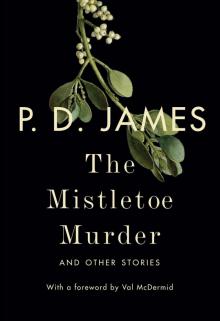 The Mistletoe Murder
The Mistletoe Murder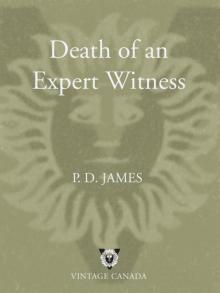 Death of an Expert Witness
Death of an Expert Witness The Private Patient
The Private Patient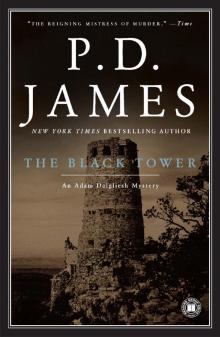 The Black Tower
The Black Tower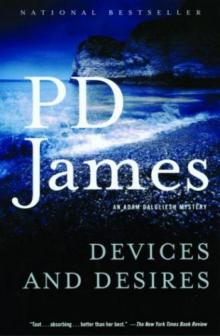 Devices & Desires - Dalgleish 08
Devices & Desires - Dalgleish 08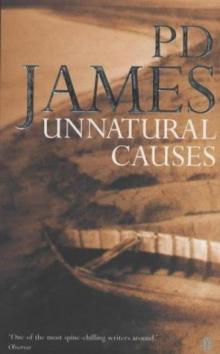 Unnatural Causes
Unnatural Causes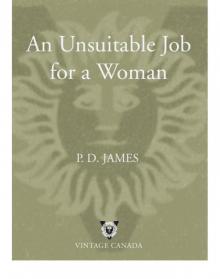 An Unsuitable Job for a Woman
An Unsuitable Job for a Woman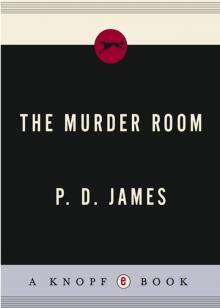 The Murder Room
The Murder Room A Certain Justice
A Certain Justice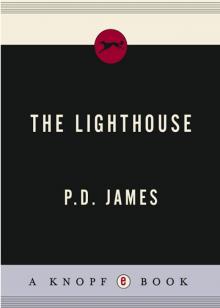 The Lighthouse
The Lighthouse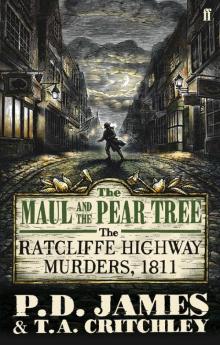 The Maul and the Pear Tree
The Maul and the Pear Tree